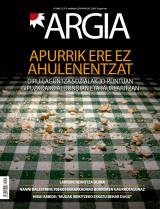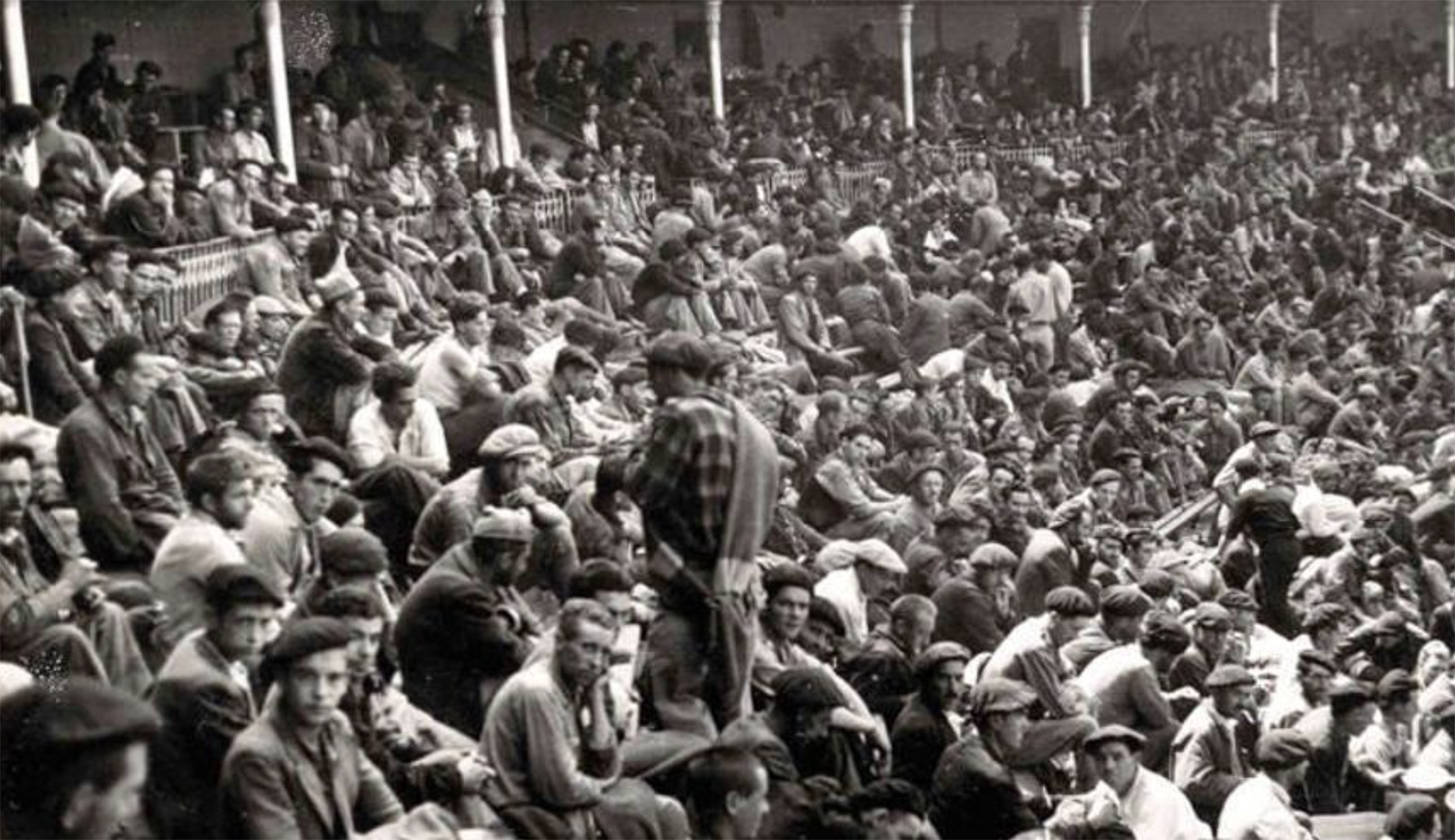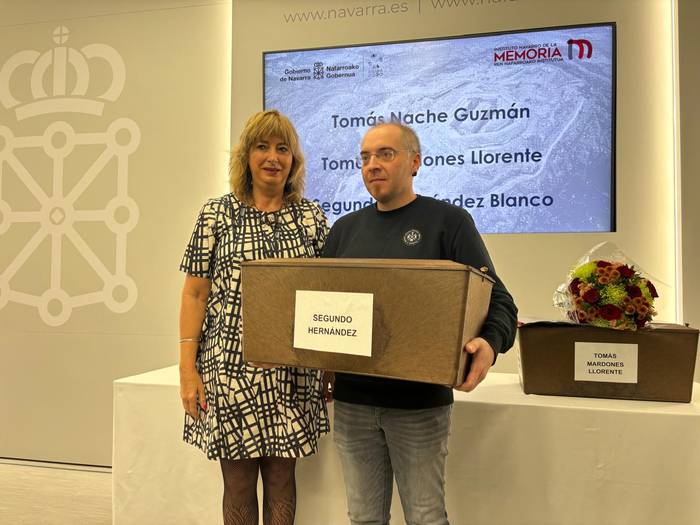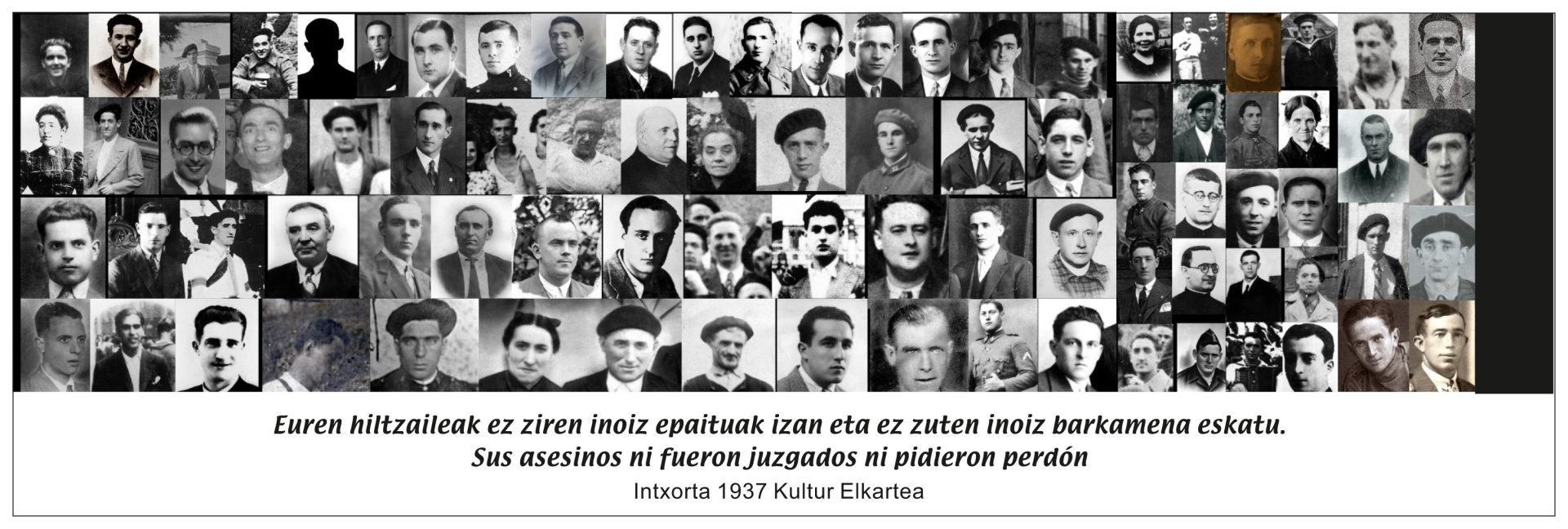The Lehendakari Agirre fusilated advisor
- He was shot by the fascists in Vitoria on 26 June 1937. This month the hospital in Urduliz will be opened, named after Urduliz. Republican Alfredo Espinosa was a councilman in Bilbao, Civil Governor of Burgos and Logroño and first Health Advisor of the Basque Government. Also known as “the doctor of the poor”, he made a great effort in the midst of war to ensure health care for all citizens.
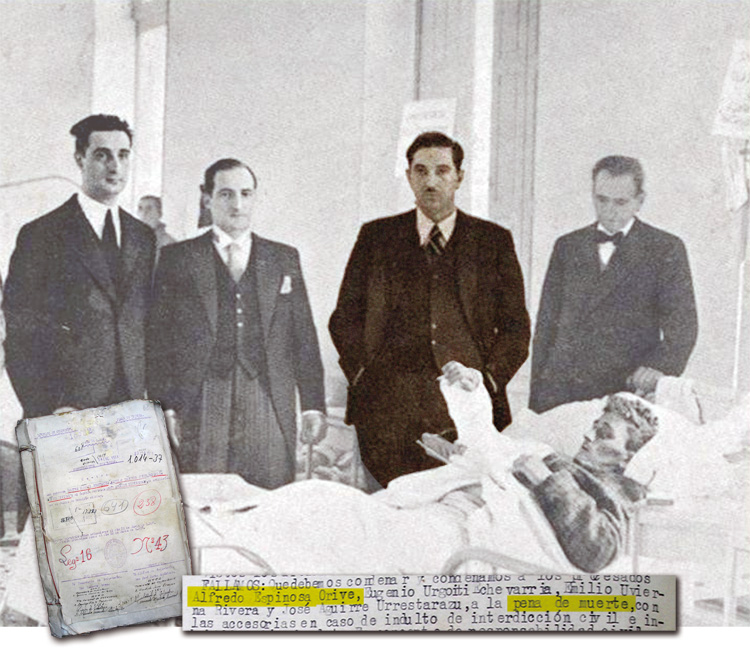
“I called Espinosa. It's too late: at five and a quarter. We have spoken, it has been confessed. Crying a lot he has asked God for forgiveness with his tears. Constantly remember your Pakita. They are seen again in the sky.” These are the words of the Jesuit Alfonso Moreno, a religious who was with him in the hard moments before the shooting of Alfredo Espinosa. Later, climbing the truck and shooting on the walls of the cemetery of Santa Isabel de Vitoria-Gasteiz, he was buried in a mass grave on June 26, 1937. He is the only one executed by the government of Agirre.
Next to him, a few meters away, artillery commander José Agirre was also shot. The two wrote and wrote their letters before they died. “Espinosa suffered a lot. She felt bullied and badly cared for. Writing all night. The siege guards, courteous and human like never before, left me alone with them for almost all the time. They needed time. Writing time. Implementation needs to be delayed. They have called by phone, there are consultations and requests… The paper is over. The demonstrators have protested the aggression against two civilians. I went to the residence to ask for paper. They have thanked me a lot,” says Moreno, showing the tension of the last few hours.
The letters are addressed, inter alia, to the mother and lehendakari Agirre: “My dear friend and colleague,” says Espinosa in one of them. I am addressing you on behalf of the entire government shortly before your execution in Vitoria prison. We were arrested in Zarautz Square because the plane was broken or because of the driver’s betrayal; I was tried and sentenced to death, and today in two hours they will comply with the sentence.”
The religious described in a writing the last moments of the cemetery: “Drowning, which is getting shorter and shorter, is terrible. We go down. We're on the wall. I gave him a scam. I said goodbye. They kissed me, kissed my cross and the two followed me. Load! Aim! Fire!”
But how did Agirre's man end up in the hands of the Francoists? Espinosa had moved to Baiona in June to buy medical supplies, in particular, accompanied by the children's colony of Gorliz, where she was admitted. After the works were completed, on 21 June he flew from Bordeaux airport to Santander to return to the other fighting governments, but suddenly the apparatus landed in Zarautz, betrayed by the pilot José María Yanguas.
Great work with refugee children
Espinosa did a great job throughout her life to improve the situation of children and those most in need: “During the war, it was mainly dedicated to the medical care of the population, especially evacuated children and refugees,” says historian Jon Penche, Alfredo Espinosa. 1903-1937. Author of the book A Republican at the service of the Basque Country. He is also the founder of a large hospital network. Iñaki Egaña, historian of the Society of Sciences Aranzadi also shares: “He made a great effort in the evacuations. It was the ugliest and most clandestine job and took advantage of all the gaps to make hospitals. He dissolved the Spanish Red Cross and also founded the Basque Red Cross.”
He also participated in the creation of the School of Medicine, “the only one that opened at that time,” Pench said. Son of a famous Republican family, since his youth he acquired a social and political commitment: “He began his political militancy in college times and in 1931 he was a councillor in Bilbao by the Socialist Radical Republican Party. He was later appointed civil governor of Burgos and Logroño.” By profession, he had one of the consultations on San Francisco Street in Bilbao. “It was known as the doctor of the poor, who cared for the neighborhood’s poor for free,” he says.
Following the coup d'état of the fascists in 1936, he was appointed in Bizkaia as the health officer of the General Police of the Republic. “Seeing the power of the coup, the police station will become a Defense Commission and become Espinosa’s chief communications officer,” his biographer explained.
Against the death penalty
Espinosa has the clear facts and is told to lehendakari: “If the courts condemn someone to death, my vote, from the other world, will always be a pardon.” Despite the hardness of the situation, he also reminded the other prisoners. “I think that yesterday they smoked Lauaxeta, another martyr, many are condemned to death. Do everyone’s trick as soon as possible, because in that situation life is terrible.”
According to Penche, “despite being a very good manager and always respecting human rights, Espinosa’s memory has been forgotten.” In Bilbao there is a street named after Alfredo Espinosa, but Penche is not understood why they have added to the name the post of “doctor” and not the post of advisor. “His party disappeared and the story has absorbed the giant image of Espinosa,” added Egaña. He was, for example, the first aid counselor for prisoners in the January 1937 prison attacks in Bilbao.
Paradoxically, the fascists did not forgive him for his life, and in the face of the attempts of the Basque Government for the exchange of Espinosa, it was Franco himself who expressly said no: “The people have asked for justice and blood.” In fact, according to the two historians, the execution of the doctor and the counsellor sought to give the Basque Government experience.
“Friend – he will write to Agirre – tell our people that a government counselor will die courageously and that he has offered his life for his freedom, with great pleasure.” His mother came up with an idea. “Your son Alfredo will die courageously, as Pepe died: you are proud that you have never committed dishonor infamia; I will die for my homeland, for Spain and for the Republic.”
Pamplona, 1939. At the beginning of the year, the bullring in the city was used as a concentration camp by the Francoists. It was officially capable of 3,000 prisoners of war, at a time when there was no front in Navarre, so those locked up there should be regarded as prisoners... [+]
Segundo Hernandez preso anarkistaren senide Lander Garciak hunkituta hitz egin du, Ezkabatik ihes egindako gasteiztarraren gorpuzkinak jasotzerako orduan. Nafarroako Gobernuak egindako urratsa eskertuta, hamarkada luzetan pairatutako isiltasuna salatu du ekitaldian.









